|
You have probably been hearing about the importance of protein from your friends, family and even your doctor for as long as you can remember. And while it’s a good thing that more people are now aware that protein is an essential component of our diet, most of us still don’t know exactly why this is the case. Furthermore, there are so many conflicting opinions and theories on the subject that it’s almost enough to make your head spin. On one hand, we have people who insist that high-protein diets are essential if you want to lose weight. On the other hand, we also have people who claim that high-protein diets are unhealthy and will lead to accelerated aging or even osteoporosis in old age. So which one is correct? Let’s take a closer look at the benefits of protein inside your body.
Why Protein is Important? Protein is the one thing that makes your entire body function at its best. Without the right balance of proteins in your body, your organs and tissues simply wouldn’t work properly. In fact, proteins are used in almost every biochemical reaction that takes place inside your body. They are essential for the growth and repair of cells, tissues and organs, and are also a source of energy when carbohydrates aren’t available. So, it’s easy to see that your body relies on protein for nearly everything! It’s also important to note that protein is essential for your body to function at its optimal level. Many people believe that protein is only important for building muscle, but in reality, it’s necessary for so much more than that. Protein is responsible for repairing and building new cells, maintaining your metabolism, and keeping your immune system strong. If you don’t consume enough protein, your body will break down its own muscle tissue to compensate for the deficit. Build and Repair Your Body’s Tissue One of the major benefits of protein is the fact that it’s used to build and repair your tissues. While carbohydrates are great at providing quick energy, they’re not very helpful for repairing or growing your tissues. This is why your body actually draws upon protein reserves when it needs to repair tissue damage. As a result, a higher-protein diet will lead to faster healing of small wounds and cuts, as well as reduced muscle soreness after intense workouts. Additionally, a higher-protein diet can even help you to prevent long-term damage. A study conducted at the University of Otago found that older adults who consumed higher-protein diets showed reduced rates of kidney damage, along with a reduced risk of osteoporosis. It Helps Maintain Your Muscles Muscle mass naturally begins to decline after reaching the age of 30, and the process can be accelerated if you don’t consume enough protein. Due to the fact that your body uses protein to build and repair muscle tissue, it’s easy to see why this is the case. The more muscle you have, the more protein you need to keep it there. Given that protein is the building block of muscle tissue, consuming enough of it will ensure that your body has enough to go around. It’s also important to note that protein helps improve the rate at which your body burns fat. This is because the amino acids found in protein are metabolized slowly, and are therefore less likely to be stored as body fat. It Helps Maintain Your Skin Did you know that your skin is the largest organ in your body? It’s also the most likely to show signs of aging due to the constant wear-and-tear it endures. Fortunately, a high-protein diet can help to reduce the aging of your skin, since it’s used to build and repair your skin cells. For example, a study published in the Journal of Nutrition found that subjects who consumed a high-protein diet for 12 weeks experienced significant improvements in skin moisture and elasticity. This is because amino acids are the building blocks of protein, and are therefore essential for building and repairing skin tissue. It Helps Keep Your Bones Strong As we age, our bones naturally become less dense and more fragile, which makes them much more likely to break. However, consuming sufficient amounts of protein can actually help to slow down the process of bone loss, and can even reverse it in some cases. This is because protein is essential for the formation of new bone tissue. It also contains a significant amount of an amino acid called silicon, which is essential for increasing bone density. Overall, the benefits of protein are endless. It’s used to build and repair your body’s tissues, is essential for muscle growth, and has even been shown to help maintain skin health and keep your bones strong. If you want to lead a healthier, more fulfilling life, then it’s important that you consume enough protein on a daily basis. For best results, it’s recommended that you consume about one gram of protein for every pound of your body weight.
0 Comments
Did you know that the protein in your body is responsible for everything from maintaining your hair and nails, to producing enzymes that assist with digestion and much more? That’s right, protein plays a key role in keeping our bodies healthy. Our bodies require protein on a daily basis because it’s essential for growth and repair of tissues and cells. Proteins are made up of amino acids, which are the building blocks of muscles, enzymes and antibodies. Protein is found in almost all foods, but certain foods have more than others. In this article you will learn about the importance of protein in our body, different sources of protein, how much protein we need per day and more! What is Protein? Protein is made up of amino acids, which are the building blocks of muscles, enzymes and antibodies. Protein is found in almost all foods, but certain foods have more than others. Protein is one of three macronutrients, along with carbohydrates and fat. Protein is needed by the body to build and repair tissues, transport substances through the bloodstream and assist with metabolic functions. Importance of Protein in Our Body Protein is essential for the health of our muscles, joints, skin and hair, as well as important metabolic functions in the body. Protein is important for the growth and maintenance of our bodies, including the building of muscles and repair of cells and tissues. Protein is crucial to the health of our immune system and the production of antibodies, enzymes and hormones. Protein also assists with the proper digestion of food, regulation of sugar levels and even weight loss. Different Sources of Protein
How Much Protein Do We Need Per Day? The amount of protein that is needed in a day varies for each person, depending on factors like age, sex, weight and activity level. According to the United States Department of Agriculture, the recommended daily protein intake for adults is about 50 grams. Protein is found in almost all foods, including vegetables, fruits and whole grains. Different sources of protein have varying amounts, including meat, fish, dairy, beans and legumes, eggs, and soy. When determining how much protein you should consume each day, keep in mind that the recommended daily protein intake is based on a 2,000-calorie diet. If you are aiming to lose weight or are on a low-calorie diet, you may need to consume less protein to stay within your daily calorie limit. Health Benefits of Protein
As you can see, protein is essential for the health of our bodies. It is important to get enough protein in your diet to maintain good health. Fortunately, it is easy to get enough protein, regardless of your dietary preferences. There are many high-protein foods that are easy to find and inexpensive. You can also take advantage of the many protein supplements available to get the protein you need. By consuming enough protein in your diet, you can maintain good health and lead a healthy lifestyle If you're looking to lose weight, you may be wondering if protein shakes are the answer. After all, they're a great way to get in your daily dose of protein, and they can help you feel full after a meal. But are they really good for weight loss? Here's a look at the pros and cons of protein shakes for weight loss. What are protein shakes and how do they work for weight loss? Protein shakes are a popular weight loss aid, and there are many different types on the market. They typically contain a blend of protein powder and other ingredients like milk, fruit, or nuts. Some shakes also contain green tea or caffeine to help boost metabolism. Protein shakes can be helpful for weight loss because they provide a concentrated source of nutrients and help you feel full after eating. When used in conjunction with a healthy diet and exercise, protein shakes can help you lose weight by reducing your calorie intake and increasing your metabolism. However, it's important to remember that protein shakes are not a miracle cure for weight loss. While they can be helpful in achieving your goals, they should not be the only tool you rely on. Here are some pros and cons of using protein shakes for weight loss: PROS:
CONS:
Protein shakes can be a helpful part of a weight loss plan, but they're not a miracle cure. Be sure to read the labels carefully and choose a brand that fits your goals and lifestyle. And remember, as, with any weight loss plan, protein shakes should be used in conjunction with a healthy diet and exercise program.
If you have any questions about using protein shakes for weight loss, talk to your doctor or a registered dietitian. They can help you create a plan that's right for you. So there you have it! The pros and cons of using protein shake for weight loss. Be sure to consult with your doctor or registered dietitian before starting any weight loss plan, including adding protein shakes to your diet. Thanks for reading! If you are a vegetarian, finding protein sources can be a bit tricky. The good news is that there are plenty of protein-rich foods out there that vegetarians can enjoy! In this blog post, we will discuss the top five best protein sources for vegetarians. We will also provide some tips on how to incorporate these protein-rich foods into your diet. So without further ado, let's get started!
1. Beans and legumes: Beans and legumes are an excellent source of protein for vegetarians. They are also a good source of fiber, which is important for keeping your digestive system healthy. Some popular beans and legumes include black beans, lentils, kidney beans, chickpeas, and soybeans. You can add beans and legumes to salads, soups, and stews, or simply eat them on their own as a side dish. tips on how to incorporate these protein-rich foods into your diet:
2. Nuts and seeds: Nuts and seeds are another great protein source for vegetarians. They are also a good source of healthy fats, vitamins, and minerals. Some popular nuts and seeds include almonds, walnuts, cashews, sunflower seeds, pumpkin seeds, and flaxseeds. You can add nuts and seeds to your breakfast cereal or oatmeal, use them as a topping for salads or soups, or simply eat them on their own as a snack. tips on how to incorporate these protein-rich foods into your diet:
3. Dairy: Dairy products are another great protein source for vegetarians. Milk, cheese, and yogurt are all excellent sources of protein. Dairy products are also a good source of calcium, which is important for strong bones and teeth. You can enjoy dairy products on their own or use them in recipes. tips on how to incorporate these protein-rich foods into your diet:
4. Eggs: Eggs are another protein-rich food that vegetarians can enjoy. Eggs are a good source of protein, vitamins, and minerals. They are also low in calories and fat. You can eat eggs for breakfast, lunch, or dinner. You can also use them in recipes such as omelets, quiches, and frittatas. tips on how to incorporate these protein-rich foods into your diet:
5. Tofu, tempeh, and seitan: Tofu, tempeh, and seitan are protein-rich foods that are made from soy. They are a good source of protein, vitamins, and minerals. Tofu, tempeh, and seitan can be used in a variety of recipes such as stir-fries, soups, stews, casseroles, and burgers. tips on how to incorporate these protein-rich foods into your diet:
These are just a few of the many protein-rich foods that vegetarians can enjoy. With so many options available, it’s easy to get the protein you need without eating meat. Just be sure to include a variety of protein-rich foods in your diet to ensure that you’re getting all the essential nutrients your body needs. What are some of your favorite protein-rich foods? Let us know in the comments below! If you're looking to get fit and healthy, protein shakes might be a part of your daily routine. But what makes the perfect protein shake? And how do you make it? In this blog post, we'll answer those questions and more. We'll also discuss the benefits of protein shakes and why you should make them a part of your diet. So whether you're just starting out on your fitness journey or you've been working out for years, read on for the perfect protein shake recipe! What is protein and why do we need it in our diets? Protein is an essential macronutrient that our bodies need for a variety of functions. It's made up of amino acids, which are the building blocks of muscle tissue. protein is important for both muscle growth and repair, making it a crucial nutrient for athletes and active people. It's also essential for maintaining a healthy weight, as it helps to regulate metabolism and keep us feeling fuller for longer. How to make the perfect protein shake There are a few things to consider when making your protein shake. First, you'll need to choose your protein powder. There are many different kinds on the market, so it's important to find one that suits your goals and lifestyle. If you're vegetarian or vegan, there are plant-based protein powders available. Why protein is a popular choice for many people as it's easily absorbed by the body and has a high protein content. Once you've chosen your powder, it's time to add some liquid. Water is always a good option, but you could also use milk or almond milk for a creamier shake. And finally, add some flavoring! This could be fruit, peanut butter, chocolate syrup, or anything else you like. Once you've added all your ingredients, just blend and enjoy! protein shake recipe:
Just mix these ingredients together and blend! You can also add ice for a colder drink. Enjoy immediately. The benefits of drinking protein shakes regularly There are many benefits to drinking protein shakes, especially if you're trying to build muscle or lose weight. As we mentioned before, protein is essential for muscle growth and repair. So if you're lifting weights regularly, protein shakes can help your muscles recover and grow stronger. They can also help you lose weight, as protein helps to regulate metabolism and keeps you feeling fuller for longer. And if you're struggling to get enough protein in your diet, protein shakes can be a convenient way to up your intake. The best times of day to drink a protein shake There is no wrong time to drink a protein shake, but there are some times of day when they can be especially beneficial. If you're drinking protein shakes to build muscle, it's best to consume them immediately after your workout. This is because your muscles are most receptive to repair and growth during this time. If you're trying to lose weight, protein shakes can be a great way to control hunger between meals. And finally, if you just want the health benefits of protein, any time of day is a good time for a shake! So there you have it, everything you need to know about protein shakes. Whether you're looking to build muscle, lose weight, or just improve your overall health, protein shakes can be a great addition to your diet. Just remember to choose a protein powder that suits your goals and lifestyle, and don't forget the flavoring!
Do you have any questions about protein shakes or making them? Let us know in the comments below! And be sure to check out our other blog posts for more tips on staying fit and healthy. Thanks for reading! Do you want to be healthy? Of course, you do! And protein is a key component to achieving and maintaining good health. Protein is essential for repairing and building muscle, and it also helps keep your metabolism running efficiently. In this blog post, we will discuss the benefits of protein and how much you need each day to stay healthy. We will also provide a list of protein-rich foods that you can add to your diet!
What is Protein? Protein is a macronutrient that is essential to the human body. It is made up of amino acids, which are the building blocks of muscle tissue. Protein plays a vital role in many bodily functions, including cell repair, hormone production, and immune system function. Without protein, our bodies would not be able to function properly! The Benefits of Protein Protein is important for many reasons. As we mentioned before, protein is necessary for repairing and building muscle tissue. But protein also helps to keep you feeling full after eating, stabilizes blood sugar levels, and provides energy throughout the day. Adding protein to your diet can also help you lose weight and maintain healthy body composition. And if that wasn’t enough, protein is also essential for a strong immune system. How Much Protein Do I Need? The amount of protein you need depends on your age, weight, and activity level. The general recommended intake for protein is 0.36 grams per pound of body weight. So, if you weigh 150 pounds, you would need 54 grams of protein each day. However, if you are very active or are trying to build muscle, you may need more protein than the average person. Consult with a registered dietitian or nutritionist to determine how much protein you should be consuming each day. Protein-Rich Foods to Add to Your Diet There are many delicious and healthy foods that are high in protein! Some of our favorites include lean meats, fish, poultry, eggs, dairy products, legumes, nuts, and seeds. Adding these protein-rich foods to your diet is a great way to make sure you’re getting all the protein your body needs. The risks associated with a high-protein diet are minimal, but it’s important to make sure you’re getting protein from healthy sources. Processed meats, such as bacon and sausage, are often high in saturated fat and sodium. And while fried chicken and cheeseburgers may be protein-rich, they are not the best choices for a healthy diet. Stick to lean protein sources, such as grilled chicken or fish, tofu, legumes, and nuts. These foods will help you meet your protein needs without jeopardizing your health! We hope this blog post has helped you better understand the importance of protein and how to make sure you’re getting enough of it each day. Protein is essential for good health, so be sure to add plenty of protein-rich foods to your diet! And if you have any questions, be sure to consult with a registered dietitian or nutritionist. They can help you create a healthy protein-packed meal plan that meets all of your needs! |
Welcome!Thank you to all our Writers and Bloggers who shares their expertise, ideas and research work! Read More
All
|


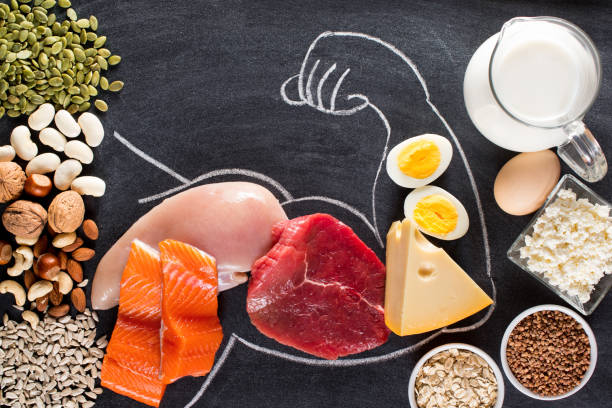
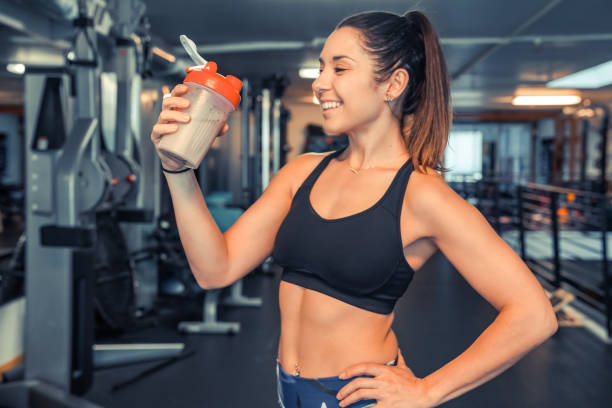
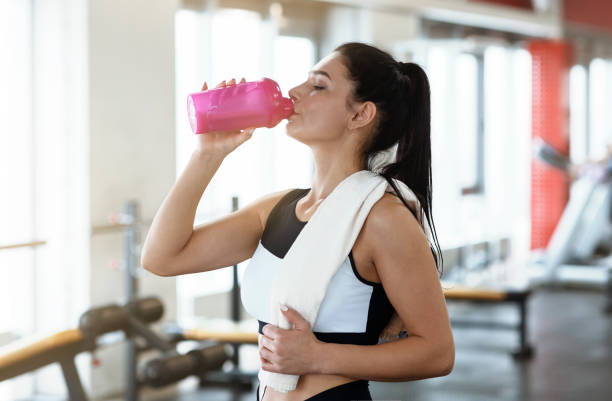
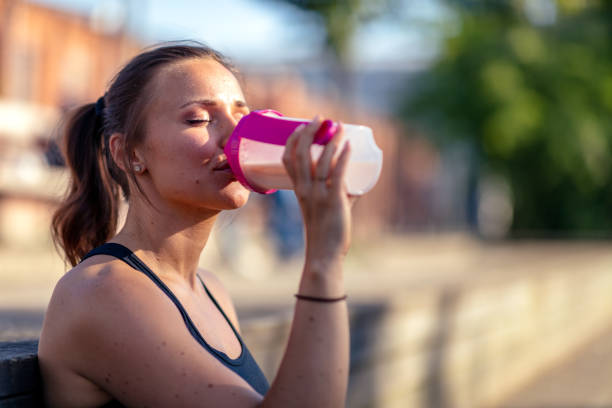


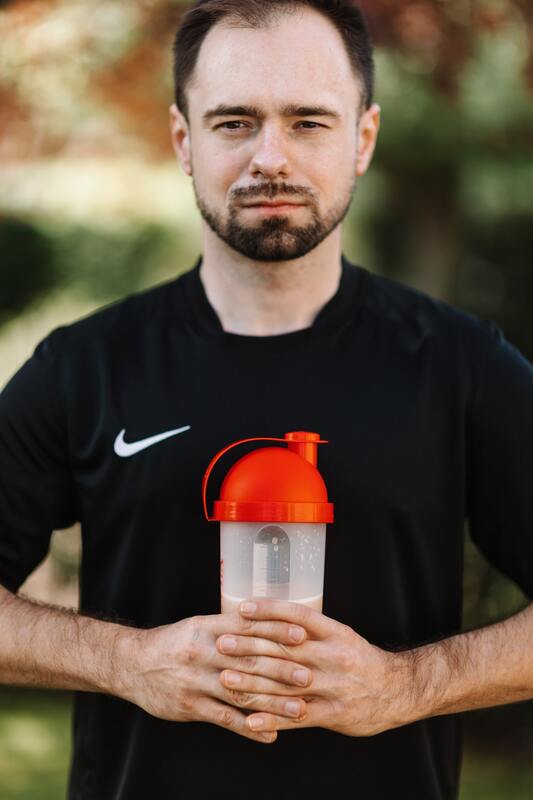

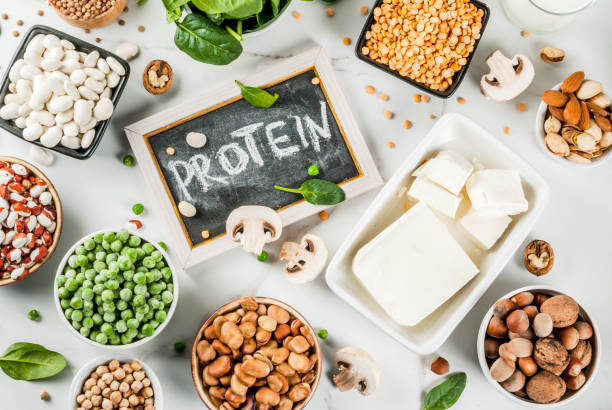
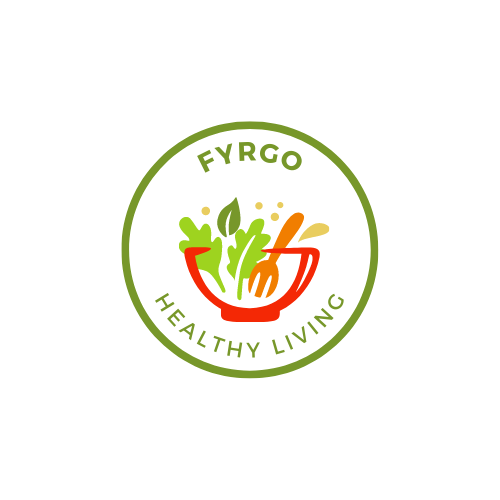
 RSS Feed
RSS Feed